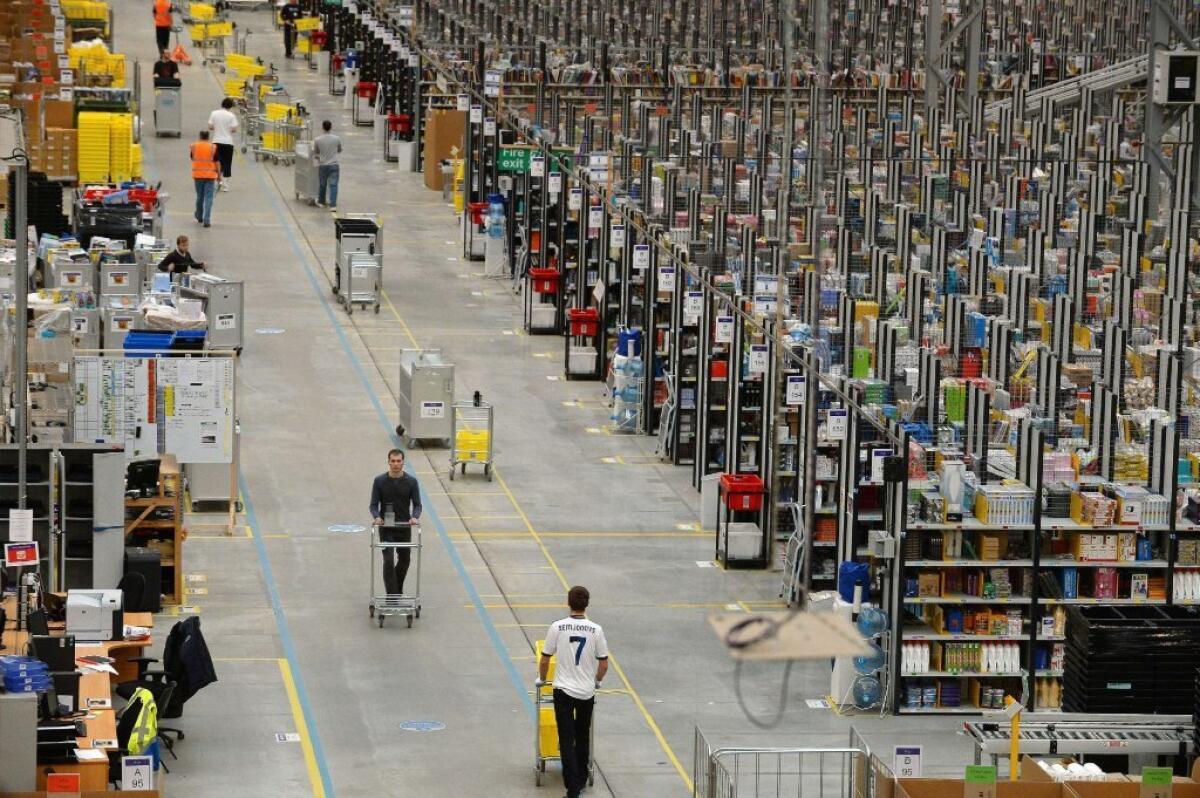Amazonâs war on sales taxes whimpers to an end

Although Amazon.com largely abandoned the battlefield in its long war against state sales taxes last year, the Supreme Court on Monday delivered the final articles of surrender. The court turned down the big retailerâs appeal of a New York court ruling upholding a law requiring Amazon to collect sales taxes from customers there. Itâs about time.
You can tell that Amazon knew defeat was coming from the fact that it already was collecting taxes from buyers in New York, pending a final ruling. The biggest sign that the winds were shifting came in 2011, when Amazon signed a deal with California, its biggest market, requiring that it collect state sales taxes starting in 2012. The company now collects taxes from customers in 16 states. Of major states, the issue remains unresolved only in Illinois.
The end of this war marks a sort of maturing of Amazonâs business model. The company always described its fight against state efforts to tax e-commerce as one of principle, but its real goal was to capture the price advantage that tax-free sales gave it over brick-and-mortar retailers. (In fact, founder Jeff Bezos acknowledged that one reason he located his company in Washington state was to avoid collecting sales tax everywhere else, but itâs a fairly small consumer market.)
That meant that a California consumer could theoretically save more than 7%, and in some communities as much as 9.75%, by buying from Amazon or any other online retailer that didnât collect California sales tax.
We say âtheoretically,â because state law requires purchasers to remit the tax themselves--in those cases itâs known as a âuse taxâ--if the retailer doesnât collect. Raise your hand if you ever voluntarily remitted a use tax on an online purchase to the state of California. Anyone? No wonder the state lost $1 billion a year in revenue this way.
As e-commerce grew, states got wise to the dodge, which was based on a Supreme Court ruling allowing sales tax collections only by retailers with a âsubstantial presenceâ in a given state. That usually meant a physical store or warehouse. Under pressure from local and chain retailers who felt the loss of sales deeply, California and New York, among others, expanded the definition to include agents such as Amazonâs âassociates,â website owners who got a commission for steering users to Amazon.
The company initially proposed a referendum to overturn the law, but that went nowhere. Instead it made a deal with Gov. Jerry Brown that put off the sales tax mandate for a year, in return for which the company pledged to open two shipping depots in the state.
Whatâs happened since then? Amazon, which always took pride in good customer service, has stepped up its game. No longer able to compete on the artificial price difference, it has shrinking delivery windows--same-day delivery of some items has been available in major cities for more than a year, and last month it launched Sunday delivery in collaboration with the U.S. Postal Service. This weekend, Bezos unveiled to a hugely admiring Charlie Rose what sounds like a fanciful plan for âdroneâ deliveries starting a few years from now. (Itâs the thought that counts.)
Congress is still pondering a bill that would impose sales tax mandates on e-retailers nationwide, though it would require states to simplify their sales tax rules, which are otherwise none of Congressâ business. This reflects Amazonâs pitch that sales taxes are too complicated, creating a burden for beleaguered retailers like itself.
The argument has always been baloney, sliced very thin: Bezos has claimed that the company faces an âundue burdenâ in tracking the sales tax rates in 20,000 jurisdictions across the nation, but it didnât seem to have any problem tracking the prices or managing the shipping of the 26.5 million items customers ordered on just one peak day last year. If the Supreme Courtâs ruling puts an end to such corporate flapdoodle, that alone will be worth our gratitude.
More to Read
Inside the business of entertainment
The Wide Shot brings you news, analysis and insights on everything from streaming wars to production â and what it all means for the future.
You may occasionally receive promotional content from the Los Angeles Times.











